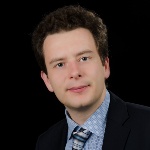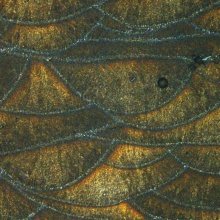Your professional partner
The Joining Technology and Additive Manufacturing department considers joining and welding technology as well as additive manufacturing as a triad of process technology, material condition and the resulting strength properties. We analyze the influence of the process parameters on the resulting microstructures, the formation of the geometry and the mechanical properties in experimental tests as well as numerical process simulations. We also offer various methods of experimental stress analysis to determine residual stresses in the laboratory and on site.
In the fields of joining technology, additive manufacturing, hydrogen and NDT, many exciting projects await you. As part of a steadily growing team of doctoral students, you will conduct research on the highly topical challenges of energy transition, e-mobility, lightweight vehicle construction, hydrogen transport and CO2 reduction.
If you are interested in a doctorate and our projects, we look forward to receiving your unsolicited application at Bewerbung@mpa.uni-stuttgart.de
The Units in our Department
-
Additive Manufacturing
Additive Manufacturing of highly stressed metallic components by means of Selective Laser Melting. This mainly includes developing modeling approaches and simulation models to predict local and general residual stress conditions, as well as translating damage-mechanical approaches for the assessment of process-related micropores. In addition, we develop and analyze new possibilities to create graded components with stress-optimized residual stress distribution. Moreover, we develop and test concepts for quality assurance.
-
Joining Technology
In the Joining Technology unit we do research on procedural, manufacturing and metallurgical issues of welding. The current focus lies on friction stir welding and resistance spot welding of high-strength aluminum and steel alloys. Moreover, we can do tests regarding projection welding, ultrasonic welding as well as fusion welding processes in our laboratories. We offer experimental work, such as parameter studies, process optimizations and examinations regarding heat treatment, the forming of microstructures and the resulting strength properties.
-
Stress Analysis and Residual Stress
We can determine residual stress at welded joints and large components, as well as stresses during operation of a part or component using different methods of experimental stress analysis. Our expertises are measuring of residual stresses, optical strain measuring as well as Applying strain gauges and forming of components into force measuring elements. In addition to tests in our accredited laboratory, we also perform measurements regarding residual stresses, forces, strains, deformations, and displacements also at the customer’s site.
Transformation-Hub Cyber Join
The unit and transformation hub CyberJoin supports vehicle manufacturers and suppliers in the automotive sector, particularly in the integration of alternative drive concepts and lightweight construction. It promotes the transfer of knowledge and bundles trends from research and development in order to tackle technological and economic challenges. CyberJoin offers a virtual research platform, website and regular knowledge transfer events such as workshops and trade fairs. The aim is to strengthen cooperation between science, industry, suppliers and vehicle manufacturers and to establish an innovation network. The University of Stuttgart Materials Testing Institute and the Gesellschaft für Schweißtechnik International mbH jointly manage the hub's activities and organize nationwide network meetings at seven locations.
Tasks and technical focus
Our department offers a comprehensive range of services and testings. Find out about the services we offer or contact us by phone or e-mail.
- Conducting sample welding
- Advising on joining technology
- On-site support, simulation of process problems in the laboratory and error analysis
- Measuring process parameters, e.g. current, voltage, force, displacement, temperature etc.
- Measuring contact resistances and electrical material resistances
- Measuring residual stresses
- Applying strain gauges and forming components into force measuring elements
- Optical strain measurement
- Numerical process simulation (FEM) in the field of welding technology - Physical simulation of microstructures typical in welding
- Tests on welded specimens (NDT, strength, metallography)
We research in the field of additive manufacturing and joining technology and also develop solutions to current issues.
- Continuum mechanical, multiphysical simulation of joining technology, particularly resistance spot welding, friction stir welding, flow-hole drilling etc.
- Development of numerical simulation methods for additive manufacturing using selective laser melting
- Development of new process modifications for aluminum-steel compounds
- Research into the interaction of joining technologies and heat treatment
- Examination and evaluation of additively manufactured specimen and components
- Development of new joining configurations for mixed joints
- Development of material models for the simulation of welding processes
- Development of new methods to determine residual stresses
- Development of force transducers for special operating conditions
In order to live up to our social responsibility, we actively participate in expert committees, panels and commissions and, thus, contribute important findings from research, development and application to guidelines and standards as an independent body.
- DVS Expert Committee 5 "Special Welding Processes"
- DVS Expert Committee 4 "Resistance Welding"
- DVS Work Group V11.2 "Friction Stir Welding"
- DVS Work Group V3.2 "Spot, Projection and Roll Seam Welding"
- VDI/VDE-GMA FA 2.11 "Electrical Measuring Method; DMS Measuring Technique"
- AWT FA13 "Residual Stresses"
- Friction stir welding machine
- Resistance welding machines for spot and projection welding
- Ultrasonic welding machines
- Machine for thermomechanical, physical microstructure simulation (Gleeble)
- Various universal testing machines, e.g. for tensile, pressure and bending tests
- Thermography/thermal imaging camera (-25°C to 2000°C, 50 images/s)
- Furnaces for heat treatment
- Department staff members are responsible for the lectures "Joining Technology", "Additive Manufacturing" and participate in other lectures.
- A choice of experimental, numerical and theoretical final and student research papers in our core areas of "joining technology", "additive manufacturing" and "stress analysis".
- Supervision of master theses in industrial companies in consultation or cooperation with the IMWF.
Flyer of the Department
How to find us
- Our location on campus
Pfaffenwaldring 32, 70569 Stuttgart - Open Street Map

Martin Werz
Dr.-Ing.Head of Department







